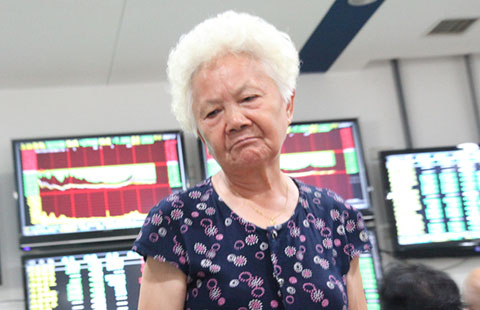Pessimism remains after G20 summit
(China Daily) Updated: 2012-06-21 10:19
From the press
The recently concluded G20 summit, this year in Los Cabos, Mexico, and the Greek election have done little to improve the sense of security of Chinese corporate leaders, who have been worriedly watching their international orders decline amid one economic disaster after another in the last four years.
Pessimism clouded the country's business press this week, as reflected by the opinions expressed in it.
The G20 summit has become an increasingly boring event, said a column in Shanghai Securities News. Rather than meet people's original expectation of a multilateral mechanism to review and react to the global economic crisis, the G20 has played a very limited role.
So far, it only appears to be a club for diverse parties to express their own interests. It is extremely hard to strike a balance of their interests, and harder still to take action even if a consensus is achieved on paper.
In the meantime, the column said, it is noticeable that perhaps the entire world is now at the beginning of a fresh round of quantitative easing - or central banks' provision of large amounts of monetary stimulus, not just in the United States and Europe, but in some emerging market economies as well.
Yet this does not offer a long-term solution. The financial newspaper Securities Times said what is needed to protect the euro and the eurozone is "greater collective wisdom" from Europe.
Europeans need to be united on their own rescue before other countries can know how to join hands with them, it said.
Chinese economists have long been sounding the alarm over an imminent and interconnected, if not global, banking crisis starting from some southern European countries.
Banks are always interconnected, and capital always flows, Dong Tao, a Chinese economist with Credit Suisse, wrote recently. Unfortunately, due to the design defects of the EU and its current lack of leadership, European banks will run into trouble sooner or later, and their trouble will affect the whole world sooner or later.
As for China's pledge to contribute $43 billion to the IMF's refinancing plan, an editorial in Economic Information Daily warned that China must see to it that the organization makes a corresponding effort in its reform.
If not. China will in the end find itself "in an awkward situation" in which its contribution is not duly recognized.
The IMF has postponed the completion of its reform from October 2012 to January 2014, the editorial noted.
The IMF's demand for new funds is not matched, it said, by a genuine desire to reform because of the US preoccupation with its presidential election and the organization's own difficulties.
As China has already pledged its financial contribution ahead of the IMF delivering on its promised reform, it will be unfair and, indeed, immoral for the organization to delay further.
China should join with other emerging market economies to press the IMF to work more effectively, the editorial said.
As for how China's own economy will fare at this difficult time, economist Zhu Baoliang wrote in Shanghai Securities News that some "moderate stimulus" will be needed in the second half of the year.
In order to balance growth, prices and employment, the economist with the State Information Center suggested that China should keep its GDP growth rate at a minimum of 8 percent this year.
This will not be an easy task, he said, because no single industry can serve as the economy's perfect growth engine. Old growth engines, such as real estate development, are no longer dependable and the other industries that work for it, such as steel and construction materials, are having overcapacity problems.
It will take time for new industries to grow strong enough to replace old growth engines such as the real estate industry.
Contact the writer at edzhang@chinadaily.com.cn
- Beijing Capital Agribusiness Group launches new Shuanghe rice processing line
- Paper magic in Shanghai 'Paper story town'
- China International Furniture Fair heads for Shanghai
- China anxiety an unwarranted global malaise
- Chrysler recalls vehicles over fuel pump flaws
- Chinese grads delay job search amid tough market
- Influence of China's stock market plunge 'limited': French minister
- Green finance booming among Chinese banks

















